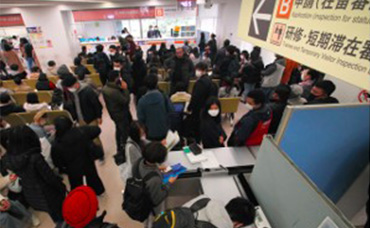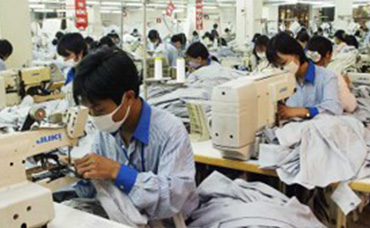HJ-201, Stanley Ho Building,
The Hong Kong Polytechnic University
Hung Hom, Kowloon
Opening hours: 9 am to 5 pm, Monday to Friday.
Migration, Health, and Labour Policy
Our aim is to understand the multi-faceted life experiences of migrant workers, families and their children in the context of internal, regional and international migration, their labor participation, social integration, education and health-related quality of life, as well as the implications for labor and welfare policy.
Projects
- Migration Policy, Welfare Boundary, Social Integration and the Health-related Quality of Life of Children from Immigrant Families
- Social and Cultural Capital in the Creation of Human and Health Capital: A Mixed Methods Comparative Study of Cross-border, Immigrant, Native-born Children in Hong Kong and HK-born Children in the Mainland
- Exit, Voice, and the Family/Work Dynamics of Married Migrant Factory Workers in China and Vietnam
- Industrial Trainees from China and Vietnam in Japan
- Urbanization, Governance, and Well-being
Migration Policy, Welfare Boundary, Social Integration and the Health-related Quality of Life of Children from Immigrant Families
With funding from the Worldwide Universities Network Research Development Fund, this project aims to investigate the health-related quality of life of children from immigrant families in relation to the migration policy and welfare entitlement at the macro level and the social integration of immigrants at the mezzo level. It contributes to our understanding of the life experiences of children from immigrant families in different social and cultural contexts as a consequence of different migration policies and welfare boundaries being operated in each setting.Social and Cultural Capital in the Creation of Human and Health Capital: A Mixed Methods Comparative Study of Cross-border, Immigrant, Native-born Children in Hong Kong and HK-born Children in the Mainland
With funding from the RGC GRF, this project aims to examine the education and health of cross-border children in comparison to immigrant children (from Mainland China), native-born children in Hong Kong, and HK-born children who live and study in the mainland. Particularly, it investigates how social capital embedded in multiple social contexts (i.e., family, school, community) and cultural capital acquired in two cultural systems (Mainland China and HK) might explain the disparities in human capital and health capital among the four groups of child population across the HK-mainland border.Industrial Trainees from China and Vietnam in Japan: An Entry Point into the Key Issues of International Labour Migration and Skill Transfer
With funding from RGC / GRF, this project aims to compare migration experiences and outcomes of Chinese and Vietnamese foreign workers under a two-tier global migration regime and a restructuring of Asian labour market along global production chain. We seek to understand Japanese foreign trainees’ migration experiences and to enable Japanese, Chinese and Vietnamese governments, as well as ILO and UN to know the effectiveness of respective new regulations on foreign trainees in Japan.
Exit, Voice, and the Family/Work Dynamics of Married Migrant Factory Workers in China and Vietnam
With funding from RGC / ECS, this project aims to identify the similarities and differences in the China's and Vietnam’s labour relations, and isolate the factors that contribute to workers’ decision to adopt either Exit or Voice. Specifically, it examines how and why the patterns of workers’ response strategy and labour relations differ by examining the roles and impacts of market, state and family in these two post-socialist countries.






